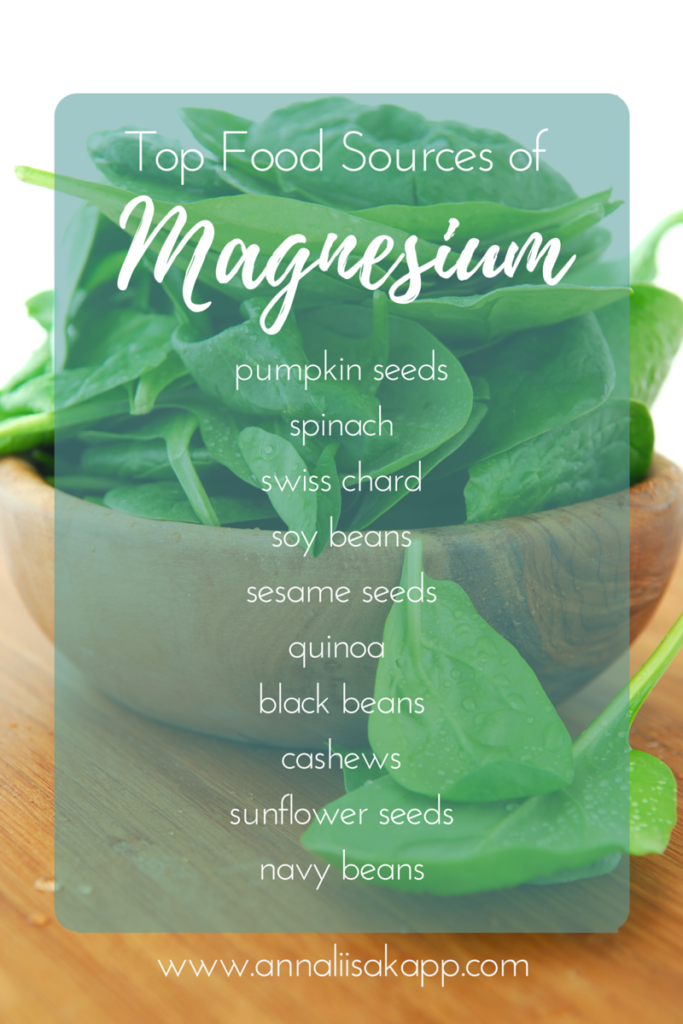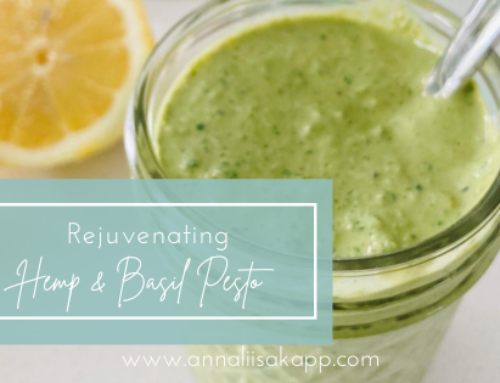
As a Holistic Nutritionist, my job involves teaching my clients how to make food choices according to their individual needs. This includes conducting a symptomatology assessment to understand what nutrient deficiencies could be contributing to their health issues.
One of the top micro-nutrient deficiencies in today’s society is magnesium. There are many factors that can lead to a decrease in magnesium absorption or magnesium deficiency:
- Soil depletion
- Eating too many processed foods and nutrient void diet
- Malabsorption of nutrients (digestive issues)
- Diuretics
- Caffeine
- Alcohol
- Sugar
- Stress (emotional, physical, or inflammatory)
- Low blood levels of calcium
- Certain medications
- Strenuous exercise
Important functions of magnesium:
- Energy production
- Relaxes skeletal and smooth muscles (blood vessels and GI tract)
- Involved in 300+ enzymatic reactions
- Dilates blood vessels (reduces high blood pressure, headaches)
How can magnesium help your body feel good? Magnesium can be helpful for:
- Asthma
- Adrenal burnout
- Diabetes
- PMS symptoms like cramps or dysmenorrhea
- Headaches, migraines
- Fatigue
- Fibromyalgia
- Muscle cramps and twitching
- Constipation
- Anxiety/nervousness
- Insomnia
- Digestion
- Weight loss
- Alcoholism
- Cardiovascular disease and heart conditions
Symptoms due to a lack of magnesium can include:
- Anorexia
- Apathy
- Asthma
- Apprehension
- Cardiovascular changes
- Confusion
- Fatigue
- Insomnia
- Irritability
- High blood pressure
- Kidney stones
- Muscle twitching
- Numbness
- Poor memory
- Reduced ability to learn
- Susceptible to stress
- Tetany of muscles
- Tingling
How much magnesium do you need?
A maintenance amount would be 6mg per 2.2 pounds of body weight daily.
Where do you get it?
The top sources are listed below, but magnesium can be found in many sources including kelp, cacao, almonds, and buckwheat.

Magnesium Supplements:
I recommend a supplement form for individuals who aren’t getting a sufficient amount of magnesium from their diet and have issues with sleeping, muscle cramps, anxiety, lack of appetite, headaches, stress, and fatigue.
The best types of magnesium come in the form of bisglycinate, citrate, and malate. We carry a range of professional brand magnesium supplements, which are available for my clients at the office. If you would like to discuss your personal needs, book your free Discovery Session with us!
Magnesium rich recipes:
Eat a Rainbow Salad with Spicy Almond Dressing
ENJOY!!
xx
 If you are looking for more sustainable habits that don’t include an overnight diet, a fad, or magic pill, and you’re ready to transform your health and energy levels, you can start your journey by applying for a complimentary
If you are looking for more sustainable habits that don’t include an overnight diet, a fad, or magic pill, and you’re ready to transform your health and energy levels, you can start your journey by applying for a complimentary





I love all the foods that have much vegetables like that. Love this recipe! so simple, easy-to-find ingredients, so easy to throw together! Beautiful dish. I will give it a try.
Definitely I would make the it soon! It looks so good ! Thanks for sharing this recipe with us! You got a great blog here.